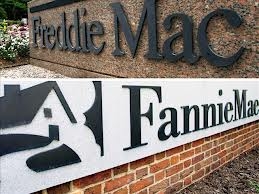A short sale is the sale of real estate in which proceeds from the sale are less than the amount owed to the bank. During the Short Sale process we will seek approval from the mortgage provider to release the home owners from their obligations to repay the debt. This is something we will negotiate for you. Short sales are one of the most common forms of loss mitigation for home owners who are no longer able to make their mortgage payments and do not qualify for other alternatives.
- Have a private and confidential consultation with LaTanya Rowe
- Review short sale required documents
- List and Market your home. A well priced home should go under contract within 30 days.
- Obtain a qualified buyer.
- Submit offer and short sale package to lender
- Negotiate with Lender the terms and conditions of the short sale approval
- Obtain Short Sale approval letter
- Go to Settlement
- Move on with your life.
- Can the Lender Pursue Judgements Against me for the Deficiency Amount?
- Will I have to pay taxes?
At least the mortgage debt relief provision is still active! However, this provision may have a limited shelf life, so if you are considering taking advantage of this provision, do your analysis and make your move early as soon as possible. If you act NOW, at least there is a chance that we can facilitate a favorable outcome for you.
- Should I Consider Renting Out My House?
Are you unable to continue making your mortgage payments? If yes, then you probably qualify. Just about anyone who can demonstrate a financial hardship may be eligible.
Here are some common hardships:
- Death in the family
- Divorce, separation or marital difficulties
- Incarceration
- Increased expenses and excessive debt
- Increased bills from illness or medical emergency
- Job transfer
- Loss or Reduction of income
- Military service
- Unemployment
- Unexpected repairs and home maintenance
- Unfavorable mortgage terms (like adjustable rates or balloons)
- Who Pays the Realtor for their Services?
Great News! The bank pays all commissions plus items the buyer might ask for (such as closing costs). They pay all the fees associated with selling your home.
- Will the lender ask me to contribute money?
Each short sale case is unique and depends on many things such as the amount and type of assets, the amount of the bank's loss and the number of loans. More often than not, we are able to obtain a short sale approval without seller contribution. If the lender requests seller contribution, you can decide at that time wheter to accept or deny the terms of the short sale. The savings you have in retirement accounts is protected. However, the savings in non-retirement accounts is fair game for lenders.
Your credit score (credit rating) is known as your FICO (Fair Isaac Corporation) score. The FICO® Score is a number that summarizes your credit risk. Lenders use it to make credit decisions, such as the interest rate you get when you apply for a loan. Your score can range from 300 to 850.
- Short Sales may not be any better than foreclosure as far as your Credit Score is concerned.
The truth is, decision makers in the lending industry know that a short sale is no different than a foreclosure or deed-in-lieu on your credit report. No matter how high the credit score a Bankruptcy, Foreclosure, Deed-in-Lieu, Short Sale, Judgements, Collections, Charge-offs and Tax liens are subject to individual evaluations. They are all noted as "not paid as agreed" on your credit report and are considered the same by your credit score.
- Bankruptcy
If you are considering bankruptcy as an alternative to foreclosure, that may have a greater impact to your credit score. While a foreclosure is a single account that you default on, declaring bankruptcy has the opportunity to affect multiple accounts and therefore has potential to have greater negative impact on your credit score.
- Paying Bills During the Short Sale Process
- Renting after a Short Sale
Most landlords are a little more lenient, due to the nationwide credit meltdown, when they see a derogatory mortgage item on your credit report. As long as you can explain to the landlord that you did a Short Sale recently and can show that you maintained all your other bills on time they might be willing to rent to you.
You can find much more information about credit scores at www.myFico.com
- Fannie Mae’s program is called Short Sale/HAFA II.
- Freddie Mac has a Streamlined Short Sale.
Both government entities have revamped their Short Sale process allowing for a little more leniency on home owner Short Sale eligibility as well as allowing up to $3000 relocation allowances. Visit the websites listed and/or schedule an appointment with LaTanya Rowe, your Virginia, Maryland and Washington DC Short Sale Specialist.















